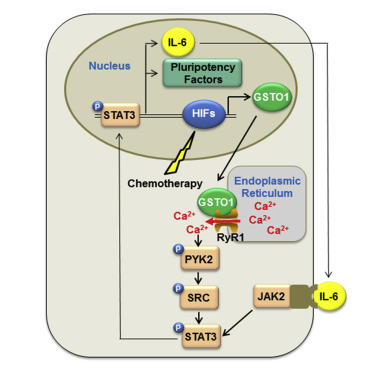Dr. Weeks’ Comment: As the attention of oncology finally turns AWAY from killing the inconsequential and wrong target: cancer TUMOR cells and towards remedying to critical problem: cancer STEM cells, we find more excellent research describing why, in the words of Prof. Max Wicha MD – member National Cancer Advisory Board, “chemotherapy and radiation therapy make your cancer worse“. These scientists recommend adding HIF inhibitors, but the most centsible option (safe, effective and cost-effective) is to add anti-inflammatory agents – especially safe, seed-based, oil-mediated anti-inflammatory agents like black cumin seed, black raspberry seed and Chardonnay grape seed .


